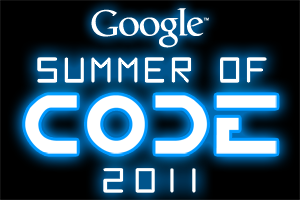
This year we are excited to have 50 organizations participating in their first Google Summer of Code. We asked each of these new organizations to contribute a short description of their project for a series of posts we’ll be running this summer, beginning today.
HelenOS
For some years, we have been developing a microkernel-based multiserver
operating system, which is not quite like the other fish in the pond. HelenOS is designed with hardware portability in mind, so it runs on many different processor architectures, such as SPARC and Itanium to name a few. At the same time, HelenOS is not quite like Unix, which both gives us freedom to design our interfaces as we please and also represents a substantial limitation to what software can be directly added to HelenOS without major modifications.
We are very excited about our acceptance to this year's Google Summer of Code, because through the program, we were given a chance to take our locally popular academic project much further. Two of our three accepted students are from universities with previously zero exposure to HelenOS.
This year, we have a couple of student projects that aim to make the usability gap mentioned above a lot smaller by porting binutils and pcc to HelenOS while enhancing our standard C library in parallel. Having a functional toolchain will take us two steps closer to becoming self-hosting one day. Our third project is focused on improving our FAT file system server and adding support for its many commonly used variants.
By Jakub Jermar, HelenOS Orginazation Administrator
----------
illumos is the fully open community fork of the OpenSolaris operating system.
Our goal is to foster open development of technologies for the 21st century while building on a 20 year heritage, but free from the oversight of a single corporate entity and the resulting challenges thereof.
We're thrilled to be part of the 2011 Google Summer of Code, and to have two talented students on board. Harshit Jain is integrating GRUB 2 as our boot loader and Shashank Karkare is rewriting our Perl system tools in C. We also offer mentorship open to anyone through our illumos Students program.
By Albert Lee, illumos Organization Administrator
----------
The Freeseer project was created to make recording video extremely easy. It's primary goal was to make recording large conferences with many talks possible on a frugal budget and ensure recordings are high quality. Since its birth in late 2008, Freeseer has evolved to do a very good job of recording talks, presentations, demos, and other video with an intuitive interface and is continuing to mature and develop. We have practical goals for 2011:
1) Improve installation. We want to make Freeseer available on Windows, Linux, MacOS, and *BSD. We want the install experience to be very easy so we've recently been putting work into packaging and thinking about how to simplify software management challenges to get our prerequisites installed on Windows.
2) Live streaming. We want to make sharing content as easy live as it is with recorded videos.
3) We've been approached by organizations that need a solution such as Freeseer to record lectures, meetings, presentations, and so forth. They need features like automatic recording in a given room according to a schedule, automatic uploading of video files after they are recorded, robust and scalable hosting they can count on and voice over IP support so remote participants can participate in the conversation. They are also interested in securing the video feed so it cannot be intercepted or tampered with and a CLI so that one operator could potentially run Freeseer in multiple rooms simultaneously and reduce labor costs.
4) Additional goals we're working on include fancier formats for the video such as adding picture-in-picture support for dual video sources, side by side video, support for an automatic timer based switch between multiple video sources, watermarks/headers/logos, and more.
For Google Summer of Code, our students are working on projects that enable the above goals. Felipe Vieira Falcão is working on adding a shell/command line interface for Freeseer. This enables scheduling, automation, and remote operators. Mathieu Hubbard is working on video uploading capabilities which will make uploading videos automatic after they are recorded and making manual upload much easier.
By Andrew Ross, Freeseer Orginization Administrator
These are just a few of the new organizations participating in the Google Summer of Code this year. We will highlight more organizations next Friday, stay tuned! You can see a complete list of the 175 organizations participating in the Google Summer of Code on our program site.
By Stephanie Taylor, Open Source Programs